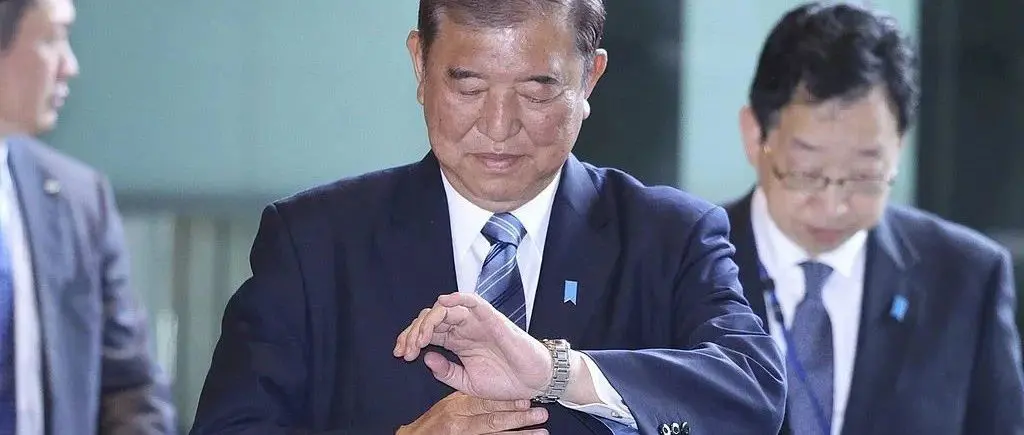Ishihara Shintaro almost became the shortest-serving Prime Minister in Japanese history!

Just yesterday, the Japanese House of Representatives held a prime minister nomination election. After two rounds of voting, Liberal Democratic Party President Shigeru Ishiba narrowly secured re-election, narrowly escaping the tragic fate of becoming Japan's shortest-serving prime minister. However, although Ishiba managed to hold onto his position as prime minister, he has not yet truly extricated himself from the predicament of governing.
The "black gold" scandal has triggered a wave of doubts, the domestic economy is sluggish, and relations with the US are shrouded in uncertainty... In response, Jiuwanli would like to say that the test for Ishihara's governance has just begun! With internal and external difficulties, his ruling position is not secure.
"Black Gold" Scandal: Aftershocks Persist. Since the "Black Gold" scandal was exposed at the end of last year, the ruling coalition led by the Liberal Democratic Party (LDP) has seen a significant drop in its support rate. Former Prime Minister Fumio Kishida resigned in disgrace. After Shigeru Ishiba took over as the LDP president, he vowed to completely sever ties with the "Black Gold" forces. However, not long after, the LDP was revealed to have secretly provided a former "Black Gold" member, who was running under a personal name, with a million yen in sponsorship to support his continued participation in the House of Representatives election.
Highly raise, gently put down. The LDP's move has severely slapped itself in the face. Not only has the public's trust plummeted to the bottom, but it has also led to the ruling coalition of the LDP and Komeito losing their majority in the House of Representatives election held on the day of this year.
On the date, major Japanese newspapers extensively reported on the House of Representatives election. The lame-duck prime minister is shackled. Due to losing the majority in the House of Representatives, the Liberal Democratic Party, in order to maintain the prime minister's position, was forced to hand over several key positions in the House of Representatives to the opposition parties they were cooperating with. Positions such as the Chairman of the Budget Committee, the Chairman of the Special Committee on Political Reform, the Chairman of the Judicial Committee, and the Chairman of the Constitutional Review were given away, among which the position of the Chairman of the Budget Committee had been monopolized by the Liberal Democratic Party for over 60 years.
For a long time to come, the LDP will lose its dominance in the National Diet over major issues such as fiscal budgets, political reforms, and constitutional reviews. With power diminished, Shigeru Ishiba has become a "lame duck prime minister," facing dual constraints from both the ruling coalition and opposition parties.
The Japan-US alliance is showing signs of strain. Shigeru Ishiba mistakenly believed that Japan could be on equal footing with the United States, overlooking the cruel reality that the US has long viewed Japan as a pawn and a subordinate. Japanese citizens are protesting the Okinawa military base. During the Liberal Democratic Party's presidential election, Ishiba proposed creating an "Asian NATO" and went out of his way to ingratiate himself with the US.
Who would have thought, U.S. National Security Advisor Sullivan called the proposal "somewhat hasty" and "premature," and bluntly stated that the United States has no intention of building an "Asian version of NATO" in the Indo-Pacific region. After being elected as the Prime Minister of Japan, Ishiba Shigeru boldly proposed to revise the Japan-U.S. Status of Forces Agreement, stating that Japan should obtain equal rights with the U.S. military presence and demanded that the United States pay the corresponding costs.
After Trump's victory, Shigeru Ishiba called to congratulate him, but was exposed by the media to have only received a minute-long conversation, leading to unanimous criticism from the Japanese public towards Ishiba. Compared to the minutes given to Macron and Yoon Suk-yeol, Trump's treatment of Ishiba was perfunctory. Various signs indicate that the Japan-US alliance is ultimately a marriage of convenience, with Japan merely seen by the US as a "gatekeeper" to contain and curb China.
Returning to pragmatism, the rift between China and Japan still needs to be resolved. After Shigeru Ishiba took office, he adopted a cautious stance on historical issues such as the Nanjing Massacre and comfort women, and did not participate in this year's "Autumn Commemoration" at the Yasukuni Shrine, sending a positive signal to ease Sino-Japanese relations. Recently, both China and Japan have reached agreements on a range of issues, including economic and trade cooperation, stable supply chains, the discharge of nuclear-contaminated water from the Fukushima nuclear power plant, and strengthening bilateral meetings.
However, in matters concerning China's core interests, Ishiba Shigeru remains unenlightened. For instance, he insists that the Diaoyu Islands belong to Japan, advocates for strengthening security cooperation between Japan and Taiwan, and promotes the rhetoric that "if something happens to Taiwan, it means something happens to Japan." Additionally, Ishiba Shigeru claims that China is a "factor threatening regional instability" and continues to cooperate with the United States in suppressing China in industries such as chips, technology, and automobiles.
Trump is about to begin his second term, and the "America First" policy is making a comeback. It remains to be seen whether Ishiba Shigeru possesses the political wisdom to turn around and improve relations with China...

